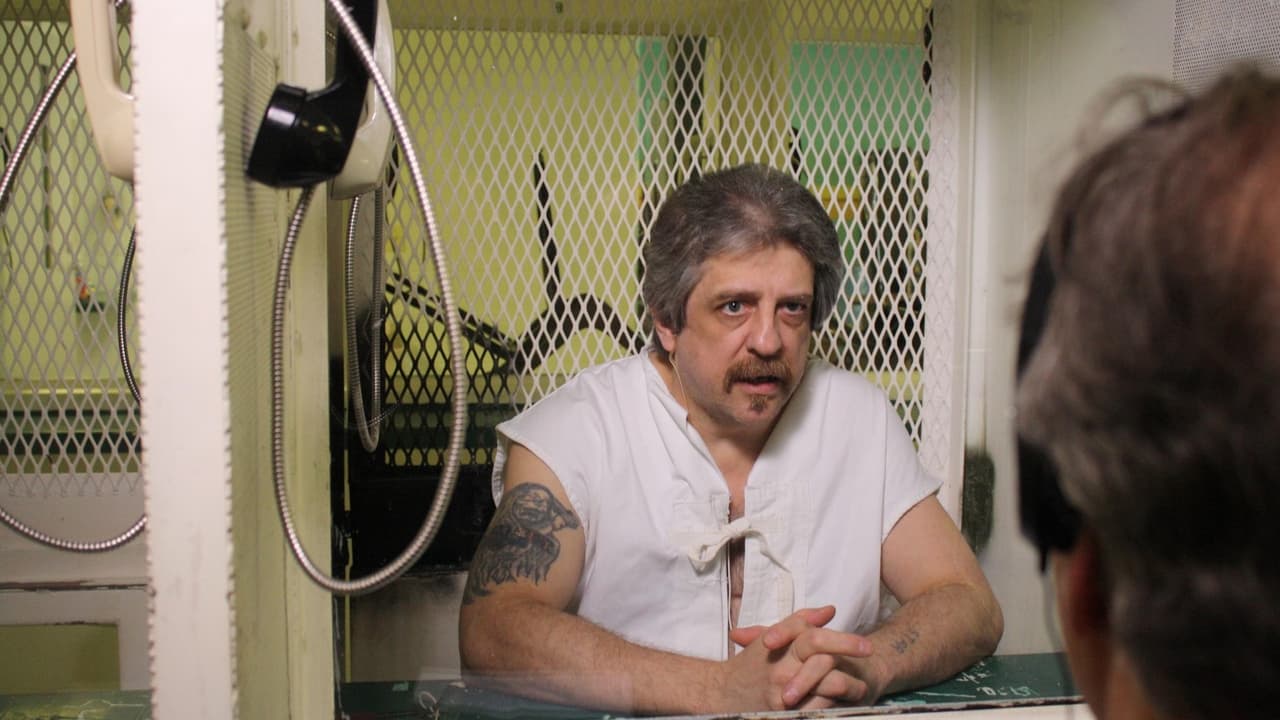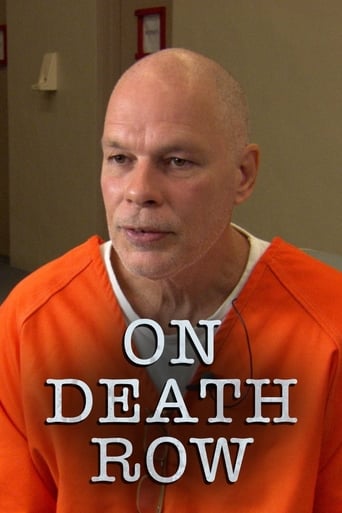

I watched this series on Netflix which showed 4 episodes. Every episode featured on Netflix was complex, thought provoking, and well done. I later learned there were 3 more episodes which I watched on youtube.It is an interesting series that is not easy to watch. Herzog shows the viewer that these monsters who have committed horrific crimes are still human beings. Some actually show some insight into their choices and how it resulted in their current fate. Most do not, and this can be frustrating. Several proclaim their innocence. The great strengths of this series are (1) Herzog's ability to let each interviewee to speak without being guided or biased, (2) the balanced presentation of crime, victim and inmate and (3) an unsympathetic view of execution.I will admit I am conflicted regarding capital punishment. I believe many of these vicious animals deserve to die. But I acknowledge it is a flawed system that is racially and financially biased.
... View MoreGerman screenwriter, film producer and director Werner Herzog's seventh short documentary which he created and narrated is a television mini-series in four parts which was produced by Creative Differences Productions, Spring Films and Werner Herzog Film Production. It was screened in the Berlinale Special section at the 62nd Berlin International Film Festival, had it's television premiere on Investigation Discovery and is a USA-UK-Austria co-production which was filmed at the Allan B. Polunsky Unit prison in Texas, USA.In this non-activist and non-political documentary which is a companion piece to Werner Herzog's 2011 documentary feature "Into the Abyss", the remarkable filmmaker goes even further into the minds of five convicted killers who are serving their sentences inside supermax prisons and makes it clear that he is not trying to humanize them, he doesn't have to like them and that what he is most interested in is what they feel about knowing how and when they are going to die. In a very unsentimental and straightforward manner, Werner Herzog instigates in-depth conversations with a woman named Linda Carty and four men named James Barnes, Joseph Garcia, George Rivas and Hank Skinner who very frankly tells him about their life on death row, their dreams, their prospects and the horrendous and meaningless crimes that has estranged them furthermore from life and brought them closer to death.Through insightful and rare interviews with family members, accomplices, defence attorneys, prosecutors, journalists and police officers, this nonfictional work creates multiple viewpoints and numerous unsettling, tragic and incomparable portraits of human beings which in some ways are given a prolonging of their last words. While notable for it's distinct cinematography by Austrian cinematographer Peter Zeitlinger and the obscure score by American composer Mark degli Antoni which emphasizes the poignant atmosphere, this informative and reflective examination of the absurdities of life respectfully puts the practice of capital punishment into a broader context. Another commendable achievement from a great storyteller.
... View MoreI knew Herzog as Grizzry Man's Director,And a little nervous how he treat the inmates,some of them were near execution.I found Director has favorite inmate,(Joseph Garcia,Hank Skinner)and moderate (George Rivas)and not a TV program but related series,he didn't like Michael Perry. I could see it too clearly,it means,Director was not doing a job as Professional. He didn't mentioned victim so much,but I can understand it as program's stance.this is and people on TV is "On Death Row". Talk to inmate include life and death,hope for possible innocence, Good Idea cause they are enclosed in small cell,people only know their name. Also my personal question,"Why Garcia's first crime was not taken self- defense? is explained."My "-5 "is for Director's eye was not clear,He had to prepared to see someone he doesn't like.(and,He'd better to think about mind status of 28 years old man who has only 8 days to own death...human tend to laugh to ease own tension) (sorry about "into the abyss"review is mixed..but I had to point the difference)
... View MoreCapital Punishment is such a primitive and savage activity, it's a wonder any practitioner or supporter is considered house-trained.To say that I'd been 'looking forward' to Werner Hertzog's film would give the wrong impression. I can say that I'd been anticipating watching it with interest for several months and it, so far, has been excellent, if disturbing.The cruel and unusual torture involved in Death Row is made very clear in the first episode. It's, to me, evident, that, even if the man being interviewed had committed the murders, and done them in cold blood, rather than when out of his mind, the 17 years of torture he has been forced to suffer has more than covered any punishment he deserved. Jeremy Bentham observed that punishment should always be in proportion to the suffering that the crime caused, it is hugely unjust, and wicked to punish with many times over the amount of pain and suffering caused. It is criminally uncivilised that the authorities have been unable to see this and have persisted in treating this man in such an ghastly, horrific and savage manner, for such an interminably long time.Of course, Herzog is not naïve. He's chosen a very unusual inmate to make the case. Not only is the inmate articulate, sensitive, mainly rational, and intelligent (though not always sensible, as is made clear!), but he's white (most people executed in the US are black), and was convicted as an adult - and there's some doubt (supported by the Supreme Court) of his guilt. I supposed Herzog looked for a similarly white, articulate, possibly guiltless, murderess, but was unable to find one. I think that this is all quite fair - if people are such moral imbeciles as to think such torture and execution acceptable, then any means of persuasion is legitimate (even if, ultimately, unlikely to succeed). After all, it is wrong to execute anybody, not just wrong to murder, judicially, people like us... Alhough one wonders a bit about mass-murderers of the Mao, Pol Pot, Tony Blair, George Bush, Stalin variety - the question of punishment for causing such massive pain, suffering, mutilation and death is more difficult in the cases of such extreme monsters, it is still true that it would be wrong to torture and execute them - after all, stringing Mussolini from a lamppost hasn't done anything to deter murderous fascists since then..The film also makes a good case for the profound depth of the depravity of executioners. Is it possible to imagine any human activity more depraved than operating a human slaughter- house? Particularly one attached to torture chambers that mete out incessant, cruel treatment, over decades, against human beings. Even soldiers have the merit of arguing that their victims can, sometimes, fight back. At least DIY home murderers can argue that they seldom, even prolific serial killers, manage to kill 200+ people a year, and that they do it for passion, or serious money - not just 'extra pay'.
... View More